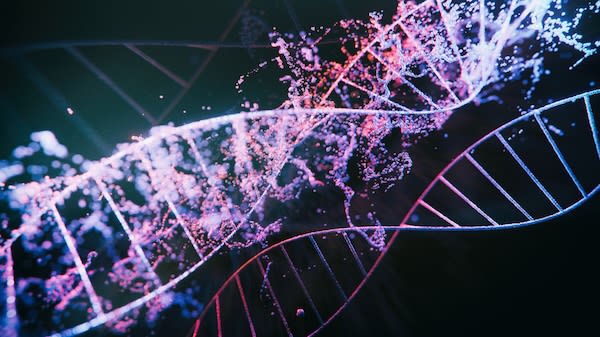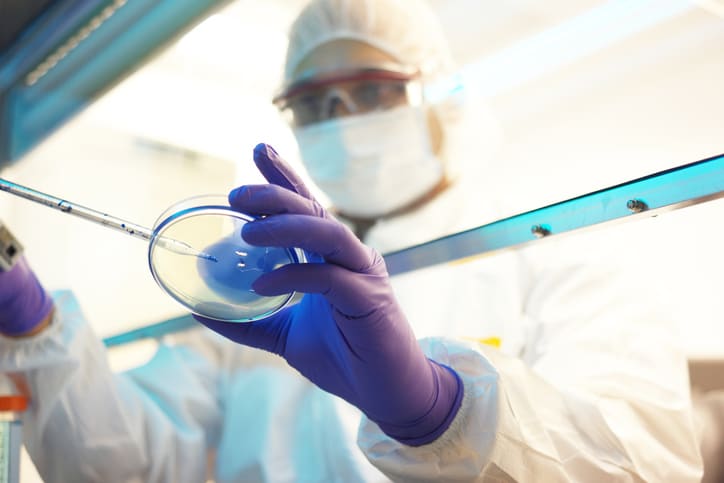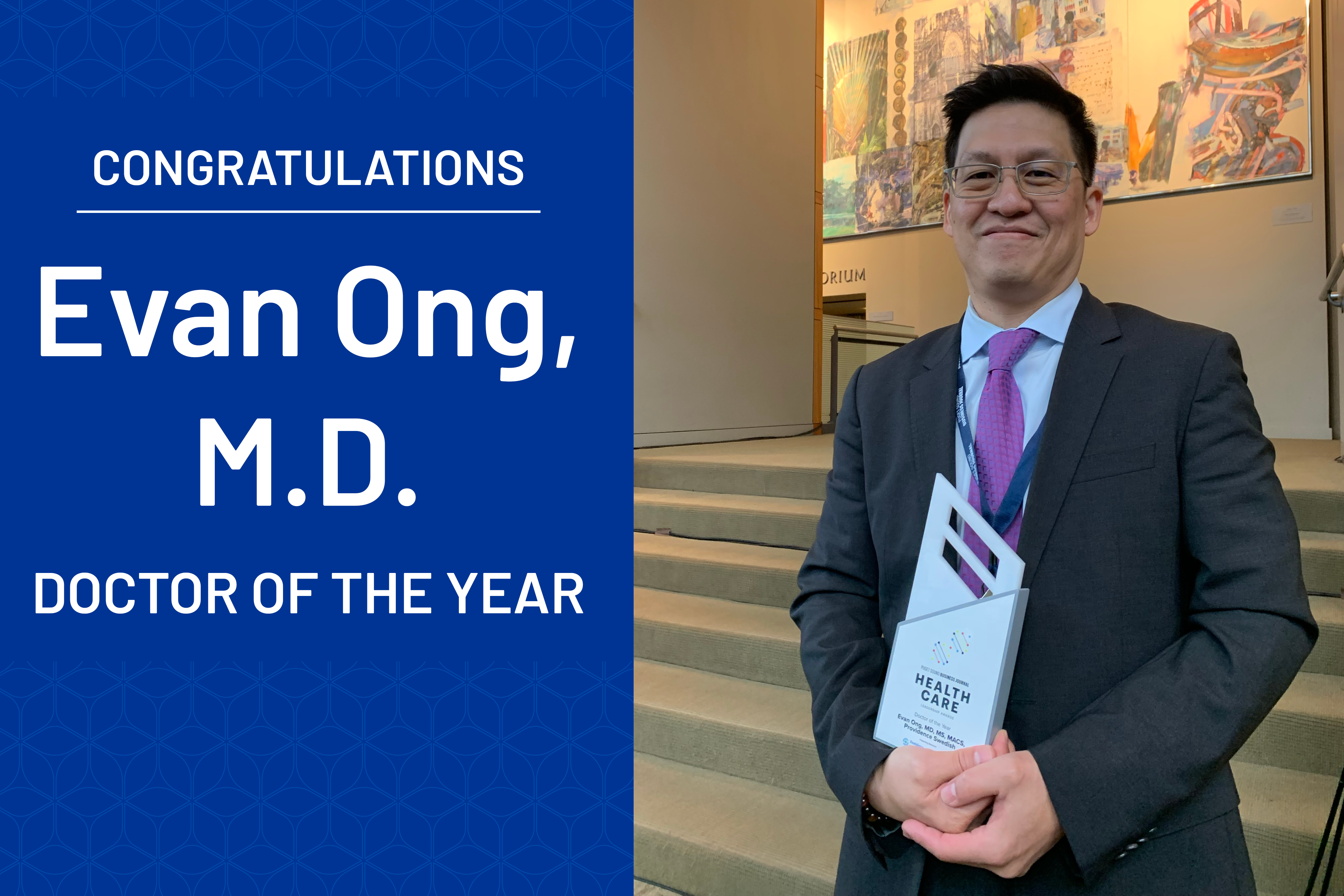The future of cancer care is in your genes

[7 MIN READ]
In this article:
-
Providence Swedish is committed to expanding access to cancer genetics services in the Pacific Northwest.
-
Advances in cancer genetics research combined with greater awareness are helping more people understand they can take steps to reduce their risk if they have a predisposition to cancer.
-
Researchers are identifying more genetic markers for cancer, providing more prevention and early detection opportunities for future generations.
The future of cancer care is in your genes
For Marianne Dubard-Gault, M.D., MS, a discovery similar to the BRCA1 and BRCA2 genes (the so-called breast cancer genes) isn’t a question of if, but when.
“There are so many more of these cancer markers to discover,” she says. “We are truly only at the beginning of this story.”
As a cancer geneticist, Dr. Dubard-Gault doesn’t just have a part to play in the future of cancer care, she has a front-row seat.
Reducing the cancer burden
Dr. Dubard-Gault wears many hats. She sees patients in the Swedish Hereditary Cancer Clinic and performs research through the Paul G. Allen Research Center at Providence Swedish Cancer Institute. She also serves as medical director of cancer genetics and high-risk services at Providence Swedish Cancer Institute (PSCI).
Her leadership challenge is to expand access to cancer genetics services to people across the Pacific Northwest.
Dr. Dubard-Gault says having a team of six genetic counselors who see patients in locations like Edmonds and Issaquah helps serve people who live outside of Seattle. The goal, though, is to expand even farther — to rural areas of Washington, as well as to parts of Alaska, Idaho and Montana.
Still, expanding cancer genetics services to more (and more remote) places is just a drop in the bucket of Dr. Dubard-Gault’s ultimate mission, which is helping people understand that there’s something they can do about a predisposition to cancer.
In fact, she believes that in the next few decades, scientific discoveries will significantly reduce the burden of cancer on society — and, more importantly, on the people affected by the disease.
“The possibilities I see today I didn’t imagine would be possible in my lifetime,” Dr. Dubard-Gault says. “There’s a lot more we need to learn, yes, but I think in the next 25 years, we’ll be able to take control of some of these risks and take them out of the equation completely, so we don’t have to bear the burden of cancer as our ancestors have.”
She adds: “It’s really what motivates me and makes me wake up every day.”
The conductor
Our genetic makeup provides a roadmap for what we look like and how our organs function, Dr. Dubard-Gault says, adding, “I think of it as the conductor on a moving train.”
While some changes in our genetic makeup don’t cause any problems, others can affect vital function and cause organ damage (like kidney disease) or cancer.
Genetic testing can help you — and your doctor — understand your risk for certain types of cancers. Even if your risk is found to be higher than someone else’s, though, it doesn’t mean you’ll develop the cancer. It simply means you know the risk in advance, so you can take steps to reduce it.
Similarly, if you already have a cancer diagnosis, genetic testing of the cancer — or of the mutations in the DNA of the cancer — can help your doctor trace its development and guide treatment decisions.
“The study of the DNA in the tumor and the genetic makeup of the patient can help doctors decide which step to implement first in treatment, such as surgery then chemotherapy or chemotherapy then surgery, or which treatment to choose over another,” Dr. Dubard-Gault says.
A common thread
Cancer is a disease that’s caused by changes in genes that control the way cells function. These changes can happen for several reasons, including due to:
- Inherited mutations, or changes, in genes that people were born with.
- Mistakes or changes in genes that occur as cells grow and divide.
- Mistakes or damage in genes inflicted by harmful environmental substances like tobacco smoke, ultraviolet rays or certain chemicals like radon or asbestos.
It’s important to distinguish that while all cancers are genetic, not all are hereditary. Hereditary cancers are those that can be linked to a gene mutation inherited from one or both parents.
Several types of cancers are known to have a hereditary connection. Some of these include breast, prostate, colorectal, ovarian and pancreatic cancer. Up to 25% of people diagnosed with ovarian cancer, for example, have a genetic predisposition they didn’t know they had.
Dr. Dubard-Gault notes that 1 in 8 people diagnosed with cancer today have a hereditary cancer. However, she adds that the number of hereditary cancers is likely much higher. We simply haven’t found proof of them yet.
“There are probably a lot more hereditary cancers than we know of today,” she says. “There are many still to be discovered. I imagine in the next 10 to 15 years every single cancer will be found to have a portion of them that are hereditary.”
For example, in the past, lung cancer was never thought to have a hereditary link. Doctors thought that lung cancers were almost all related to smoking. A new field of research, however, uses scientists’ ability to test the genetic makeup of tumors to explore why some people who have never smoked develop the disease.
That’s led researchers to start building the foundations for genetic testing for lung cancer and identifying an explanation (called a genetic marker).
Creating opportunities for prevention
Finding hereditary cancers is significant because when one person is found to have a genetic predisposition to cancer, half their relatives are also then at risk for developing the same type of cancer.
“This is something that touches a lot of people,” Dr. Dubard-Gault says. “It creates what I call a window of opportunity to reach patients and these relatives, offer them genetic testing, and help stop the next cancer from developing — or detect it early for as many people in the family as possible.”
While an inherited genetic mutation won’t be the sole culprit for all cancers — often, cancers develop due to a combination of reasons, including environmental factors — discovering common hereditary threads will help remove the “false reassurance of a negative genetic test result,” she says, explaining, “I think we need to develop more informative testing before we remove the possibility that there could be a hereditary link.”
Dr. Dubard-Gault believes in transparency with patients, letting them know that while they tested negative for a certain gene mutation, it doesn’t mean they’re necessarily out of the woods.
“If there’s a strong family history for a type of cancer, I believe there must be something that’s tying them together,” she says. “We just may not have found what it is yet.”
Dr. Dubard-Gault adds: “I share the limitations of our technology, the unknowns in cancer predispositions, and the need to readjust the plan as we go with my patients. What’s really exciting for me right now is that we can provide cutting-edge care for people while we’re conducting this research. It’s like flying the plane as you build it.”
If someone expresses a fear or concern about genetic testing, Dr. Dubard-Gault explains that cancer genetic health care professionals use a medical-grade test that becomes private health information, which only the patient can choose to share with others.
“When it comes to knowing you have a predisposition to cancer, it gives you and your doctors the ability to match the screening you’re getting to the risks of developing certain cancers over others,” she says. “We may not be able to detect all the cancers someone is at risk of developing today, but we can offer much more precise screening than we could 10 years ago, and I believe we will continue to find new ways to catch cancer early.”
A medical home base for hereditary cancer care
At PSCI, for example, patients can enroll in studies examining whether blood tests can be effective at detecting cancer. This not only helps the patients themselves but also the community as more is learned about the testing.
“One day, blood testing might be able to take the place of some of the complex tests like MRIs and CT scans,” Dr. Dubard-Gault says. “We’re nowhere near anything like that today, but kind of setting the stage for that to be what happens 10 years from now is what really makes me excited that we can do this at Providence Swedish.”
Today, cancer genetics services available at PSCI include:
- Genetic counseling
- Genetic testing
- A risk assessment visit
- A care plan tailored to your personal risk profile
Tying cancer genetics services to PSCI is beneficial because it provides a medical home base for patients who need follow-up care — if they are found to have a predisposition to certain types of cancers, for instance, and need frequent screenings.
Putting discovery into practice
As she looks to the future, Dr. Dubard-Gault says her North Star will remain helping people who have a genetic predisposition to cancer not repeat history.
“How can we make it so they can do something different about their risk and not develop the cancer that’s been claiming lives in their family,” she says. “There are so many options today that make me hopeful for the future. We want to integrate these novel technology options with blood-based tests and research studies dedicated to patients at risk of cancer. That way, they can benefit from early detection of cancer and precision prevention in the future.”
Still, Dr. Dubard-Gault adds: “This field is changing all the time, so keeping up with the science and research and translating the novel findings into day-to-day practice is the challenge of the next decade. The hard part will be making sense of all we discover.”
Learn more and find a physician or advanced practice clinician (APC)
At the Providence Swedish Cancer Institute, we know that no two cancers are alike. That’s why we focus on you — not your disease. If you need cancer care or are looking for testing to determine your cancer risk, we can help.
You can also learn more about available clinical trials. Our physician investigators and researchers are involved in hundreds of ongoing trials involving most types of cancer.
Whether you require an in-person visit or want to consult a doctor virtually, you have options. Contact Swedish Primary Care to schedule an appointment with a primary care physician. You can also connect virtually with your doctor to review your symptoms, provide instruction and follow up as needed. And with Swedish ExpressCare Virtual, you can receive treatment in minutes for common conditions such as colds, flu, urinary tract infections, and more. You can use our provider directory to find a specialist or primary care physician near you.
Information for patients and visitors
Related resources
The future of cancer research, treatment and care is at Providence Swedish
Separating breast cancer myths from reality can help you understand your risk
New colon cancer blood test does not replace colonoscopies
This information is not intended as a substitute for professional medical care. Always follow your health care professional's instructions.
Providence Swedish experts in the media
Follow us on Facebook, Instagram and X.


